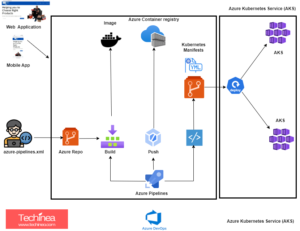In 2024, the landscape of DevOps and Site Reliability Engineering (SRE) tools continues to evolve rapidly, driven by technological advancements and changing industry trends. Here are some notable tools that organizations should consider incorporating into their toolchains for DevOps and SRE practices:
DevOps Tools:
Jenkins X: Building upon the success of Jenkins, Jenkins X is a cloud-native, Kubernetes-based automation platform tailored for CI/CD pipelines in modern cloud environments. It streamlines the process of building, deploying, and managing containerized applications.
GitLab: GitLab is a complete DevOps platform that provides version control, CI/CD pipelines, code review, and issue tracking in a single application. It offers built-in Kubernetes integration and robust collaboration features for teams.
Spinnaker: Spinnaker is an open-source, multi-cloud continuous delivery platform that enables organizations to deploy and manage applications across various cloud providers with built-in deployment strategies and sophisticated pipeline orchestration.
Terraform: Terraform by HashiCorp is an infrastructure as code tool that allows developers to define and provision infrastructure resources using a declarative configuration language. It supports multiple cloud providers and enables automation of infrastructure deployment and management.
Prometheus: Prometheus is an open-source monitoring and alerting toolkit designed for cloud-native environments. It provides a flexible query language, time series database, and powerful alerting capabilities for monitoring containerized applications and microservices.
SRE Tools:
Grafana: Grafana is a widely-used open-source analytics and visualization platform that integrates with various data sources, including Prometheus, to create dashboards and monitor system performance, application metrics, and infrastructure health.
Elastic Stack (Elasticsearch, Logstash, Kibana): Elastic Stack, also known as ELK Stack, is a powerful suite of tools for logging, log analysis, and visualization. Elasticsearch is a distributed search and analytics engine, Logstash is a log ingestion and processing pipeline, and Kibana is a data visualization dashboard.
PagerDuty: PagerDuty is an incident management platform that helps teams respond to issues and incidents in real-time. It centralizes alerts from monitoring tools, notifies on-call responders, and facilitates collaboration during incident resolution.
Chaos Engineering Tools (e.g., Chaos Toolkit, Gremlin): Chaos engineering tools enable organizations to proactively test system resilience and fault tolerance by simulating real-world failures and outages. These tools help identify weaknesses in infrastructure and applications before they impact users.
HashiCorp Vault: HashiCorp Vault is a secrets management solution that provides a secure and centralized repository for managing sensitive data such as passwords, API keys, and certificates. It offers encryption, access control, and audit logging features to protect critical information.
As organizations continue to embrace DevOps and SRE practices, selecting the right combination of tools tailored to their specific needs and requirements is essential for achieving success in delivering reliable, scalable, and resilient software solutions.




